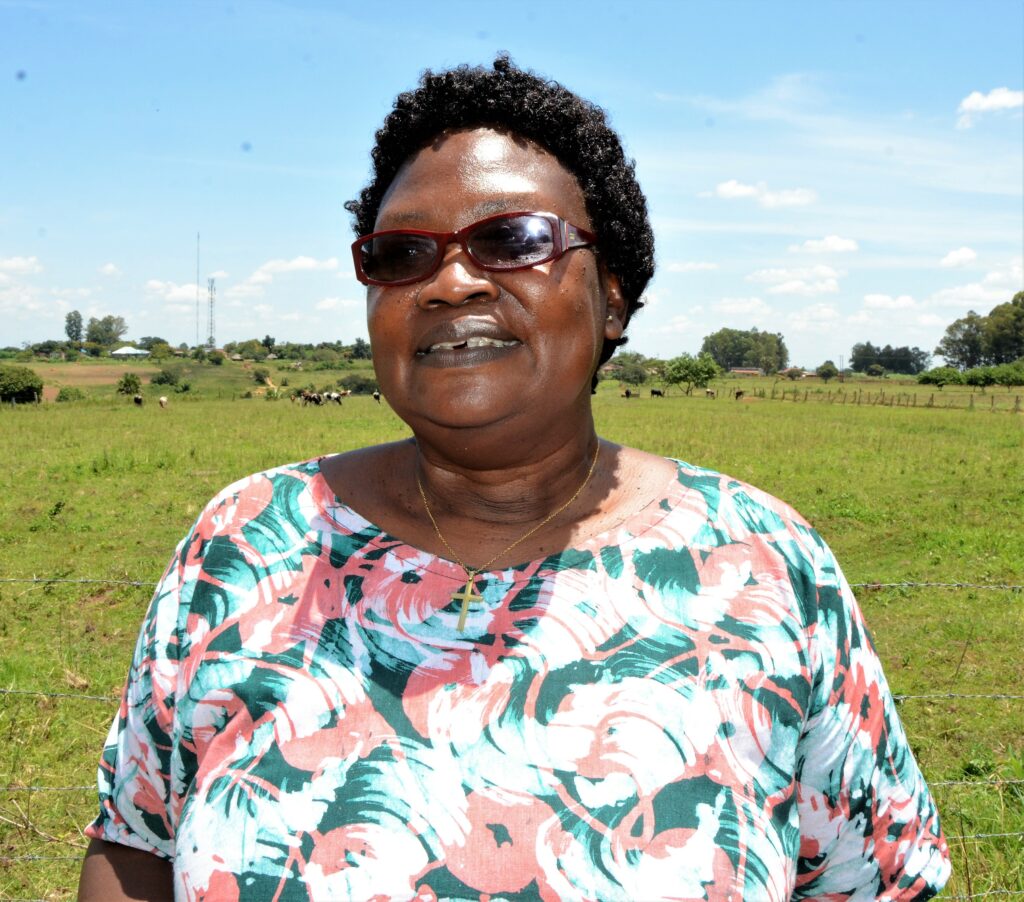By Robert Ariaka
Dairy farmers in West Nile are still faced with a huge challenge of buying pasture for their animals amidst easy ways of growing their own .
The farmers on Friday and Saturday got trained on growing pasture for their dairy cows to reduce the high cost of buying pasture and transportation and best farming practices.
The National Agricultural Research Organization NARO through its Abi Zardi Zonal Agricultural Research and Development Institute in Arua trained farmers on best practices to enable them to get better returns from their dairy cows.
The farmers from various parts of West Nile who willingly embraced the training shared their challenge of incurring costs in buying feed for the animals yet their option of growing pasture would reduce the burden.
This has enlightened them to venture into growing pasture and tapping other available feeds like banana pills, harvesting grass and fodder from crops like maize, simsim, beans and soya beans to feed the animals.
The farmers who lacked proper knowledge of taking good care of their heifer cows now believe they can manage after attaining a two days skills training on management of dairy farming and other food crops.
A heifer farmer in Warr Town Council in Zombo district Anne Odubi Orwothto believes from the rudimental way of keeping the cows, she will now embrace the modern method and plant pasture for the animals to cut feeding cost.
“I had not attained the skills from the time I ventured into keeping animals. With the knowledge I got, it will be easier for me to properly manage the animals” Odubi said.
Odubi is able to realize Sh300,000 on a monthly basis from her three heifers and spends Sh150,000 for improvising feeding for the animals including transport cost for the feeds.
The knowledge I have received will reduce the cost of buying feed but now I have to manage the treatment aspect for the animals, Odubi said.
Another dairy farmer in Arua City Caroline Lilly Ucanda who is currently taking care of three heifers could not miss being part of the training as a new dairy farmer who benefited from the heifers from the Presidential Initiative through Office of the Prime Minister early this year.
Ocanda has been taking care of the heifers without attaining skills but has managed to keep them alive despite other farmers losing their heifers.
All her three heifers are expecting to deliver soon and this according to Ocanda will start earning her daily income from the milk.
The high cost of buying pasture has been a big hurdle but with the knowledge attained, Ocanda says she will not get land to plant pasture for the animals and reduce the expense on pasture.

She spends Sh500,000 monthly to care for the three animals for pasture, paying two employees and treatment of the animals.
The farmers are advised to ensure they consult veterinary officers to have better and correct prescription and treatment for the animals to avoid wrong treatment that kills the cows.
The Livestock production technician at Abi Zardi Agnes Amito acknowledges, most of the heifer farmers in West Nile fail to produce the required milk from their animals and cannot realize the liters of milk from their heifers.
Due to poor management, many of them have lost their animals to diseases and poor feeding affecting their health.
Amito advises the farmers to always treat their animals using the recommended treatment prescribed by an expert and provide adequate feed for the heifers if they need enough milk.
He trained them on the best methods of growing pasture, serving the feeds to the animals and administering treatment.
Sadik Kasim, the Deputy Director General in charge technology promotion at NARO implores the people of West Nile to always take good care of their animals whether local or the high breeds if they need better returns of milk.
He said milk has available markets not only in West Nile but also in the neighboring countries of South Sudan and Eastern Democratic Republic of Congo.
Kasim advises farmers to use modern ways of utilizing the available small land profitably for production without the acquired knowledge for better benefit.





